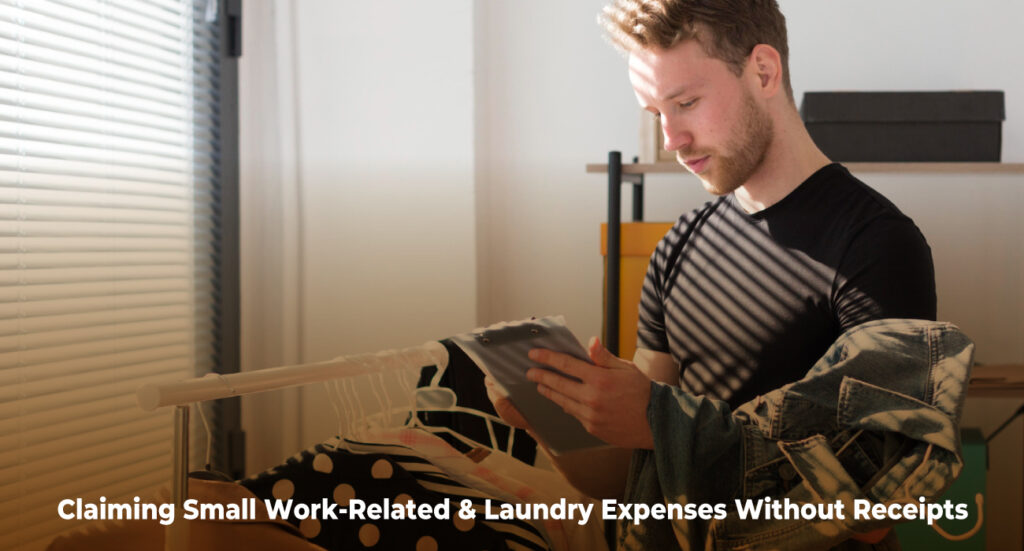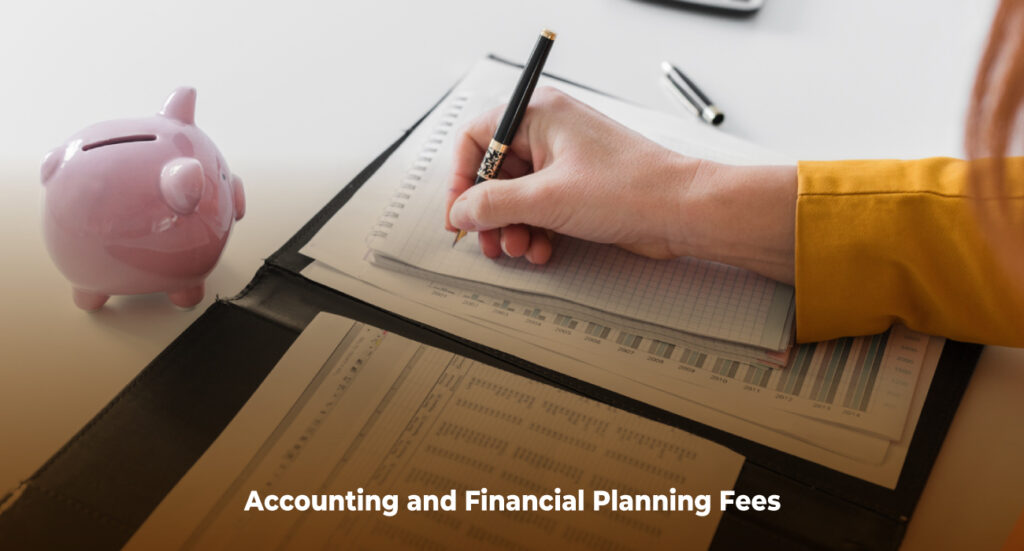Top 5 Tax Deductions Every Australian Can Claim — No Matter What You Do for a Living.
Introduction
When it comes to tax time in Australia, most people think deductions are only for those with complex jobs or investment portfolios. In reality, every taxpayer—from a checkout operator or kitchen hand to a tradie, nurse, or CEO—has the opportunity to claim legitimate deductions that can reduce their taxable income and boost their refund. The Australian Taxation Office (ATO) allows a wide range of claims, but the key is knowing which ones apply to everyone, regardless of your role or income level. Whether you earn wages, run a small business, or manage a large team, understanding these common deductions can make a big difference. Here are the top five tax deductions that almost every Australian can benefit from—simple, practical, and fully compliant with ATO rules.

1. Work-Related Deductions
This is one of the most overlooked tax deductions among employees. Many taxpayers forget to keep receipts throughout the year, and as we all know, without proper records, even a genuine expense can’t be claimed. The good news is that some work-related expenses can still be claimed with minimal paperwork — as long as you keep a clear log or diary.
For instance, motor vehicle expenses can be claimed using the ATO’s cents-per-kilometre method, which for the 2025 tax year allows 88 cents per kilometre for up to 5,000 work kilometres per car. This covers fuel, registration, insurance, and depreciation — no receipts required, just a reliable record of your work trips. If you’re a shift worker travelling between job sites, your travel costs (train, bus, or car) are deductible too.
The ATO’s fixed rate for working from home in 2025 is 70¢ per hour, covering electricity, internet, mobile phone, and stationery costs. To claim, keep a record of your hours worked from home and at least one bill showing these expenses. You can’t claim separate phone or internet deductions under this method. Want the full checklist? Read our detailed article: A Complete Guide to Claiming Work-From-Home Expenses for 2025.
Tools and equipment are another common claim. A labourer buying power tools or an IT specialist purchasing a high-performance laptop for work can claim either the full cost (if under $300) or depreciation over time.
Lastly, don’t forget laundry for compulsory uniforms. If you work at places like Woolworths or Coles and must wear a logoed uniform, you can claim washing expenses — $1 per load if it’s all work clothes or 50¢ if mixed with personal laundry.
It’s the little things — your car logbook, laundry routine, and work tools — that often add up to meaningful tax savings. So, don’t overlook them this tax time!

2. Claiming Small Work-Related and Laundry Expenses Without Receipts
The ATO recognises that not every small expense comes with a neat paper trail. If your total work-related expenses are $300 or less, you can still claim a deduction without full written evidence such as receipts — provided you can show that you spent the money and can explain how you calculated the claim. For example, you might highlight relevant transactions on your bank statement and include short notes describing how each item directly relates to your job. Keep in mind, the $300 limit doesn’t apply to car expenses, meal allowances, award transport payments, or travel allowance claims, as these have separate record-keeping rules.
Similarly, if your total laundry expenses for work-related clothing are $150 or less (excluding dry-cleaning), you don’t need receipts — but you do need a record of how you worked it out. The ATO allows a simple method: claim $1 per load if you wash only work clothes, or 50¢ per load if mixed with other clothes. A short note in your phone or spreadsheet showing your calculation is enough to substantiate your claim.

3. Self-Education and Training Expenses
Learning never stops—no matter what you do for a living. Whether you’re a checkout operator completing a short customer-service course, a tradie updating your safety ticket, or a manager attending a leadership workshop, the ATO allows deductions for education or training that directly relates to your current job. You can claim expenses such as course or tuition fees, textbooks, stationery, travel between work and your place of study, and depreciation on your study equipment (like a laptop or tablet).
However, the key rule is that the study must help you maintain or improve the skills you already use to earn your income—not qualify you for a new job or career. For example, a chef taking an advanced cooking class can claim the cost, but if that same chef studies to become a restaurant manager, it’s not deductible.

4. Donations to Registered Charities
All Australians are a generous bunch — and most of us contribute to a cause in some form or another, whether it’s donating to a charity, supporting a school fundraiser, or giving through workplace giving programs. However, the reality is that many Australians tend to give and forget. While generosity itself is rewarding, it’s worth remembering that eligible donations can also reduce your taxable income if they meet the ATO’s criteria.
To claim a deduction, your donation must be made to a Deductible Gift Recipient (DGR) — a charity or organisation officially registered with the Australian Taxation Office. The donation must be $2 or more, and you need to have a record such as a receipt or confirmation email. You can’t claim for raffle tickets, fundraising dinners, or items where you received a benefit in return.
If you made regular contributions throughout the year, gather those receipts before lodging your return — those small acts of kindness can add up to meaningful tax savings.

5. Accounting and Financial Planning Fees
Most Australians use a tax agent or accountant to lodge their returns, yet few realise that the fee you pay to prepare or lodge your tax return is fully tax-deductible. The ATO allows you to claim the cost of managing your tax affairs, including fees paid to registered accountants for preparing your return, lodging amendments, or providing tax advice. You can also claim costs for attending tax-related seminars or obtaining professional tax guidance during the year. The deduction is usually claimed in the following year’s return — meaning the fee you paid to your accountant this year will reduce your taxable income next year.
Similarly, financial planning fees may also be deductible, but only when they relate directly to managing your existing investments or generating assessable income. For instance, advice on how to structure or manage shares, rental properties, or superannuation investments can often qualify. However, fees for setting up new investments, creating wealth plans, or insurance commissions generally aren’t deductible.
Keeping clear invoices from your accountant and financial planner ensures you maximise both deductions — while staying compliant with ATO rules.
Additional Deductions Worth Considering
Beyond the common deductions most Australians know about, there are a few often-overlooked tax breaks that can make a big difference. If you have investment income — such as dividends, interest, or rental earnings — you can claim related expenses like investment advice fees, management fees, bank charges, and interest on loans used to buy income-producing assets. Even the cost of maintaining investment records or paying for financial reports can be deductible.
Another important deduction is income protection insurance. If you pay premiums for a policy that covers loss of income (outside of super), those premiums are tax-deductible. It’s one of the smartest ways to protect your financial future while reducing taxable income.
What’s Next
At the end of the day, every Australian — whether you’re earning wages, running a small business, or managing a team — has access to legitimate deductions that can make a real difference at tax time. From work-related costs and self-education expenses to donations and professional fees, understanding what you can claim is the key to maximising your refund while staying fully compliant with ATO rules.
Tax laws are constantly evolving, and even small mistakes or missed opportunities can cost you money. That’s where expert guidance matters. At Investax, our team of experienced tax specialists helps individuals and businesses identify every eligible deduction, structure their affairs smartly, and plan ahead for the next financial year.
General Advice Warning
The material on this page and on this website has been prepared for general information purposes only and not as specific advice to any particular person. Any advice contained on this page and on this website is General Advice and does not take into account any person’s particular investment objectives, financial situation and particular needs.
Before making an investment decision based on this advice you should consider, with or without the assistance of a securities adviser, whether it is appropriate to your particular investment needs, objectives and financial circumstances. In addition, the examples provided on this page and on this website are for illustrative purposes only.
Although every effort has been made to verify the accuracy of the information contained on this page and on our website, Investax Group, its officers, representatives, employees and agents disclaim all liability [except for any liability which by law cannot be excluded), for any error, inaccuracy in, or omission from the information contained in this website or any loss or damage suffered by any person directly or indirectly through relying on this information.





